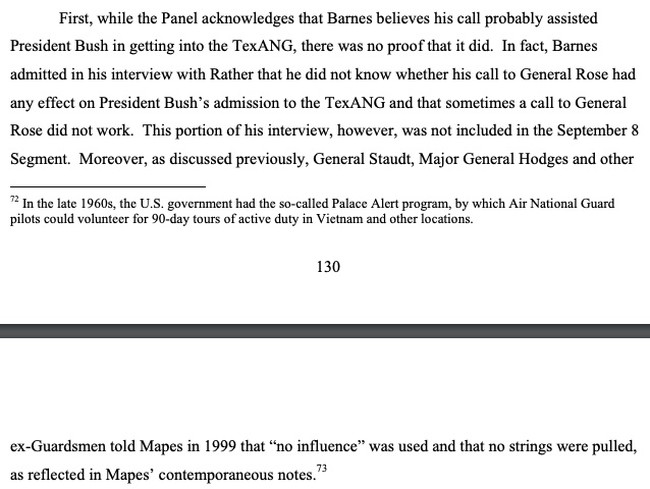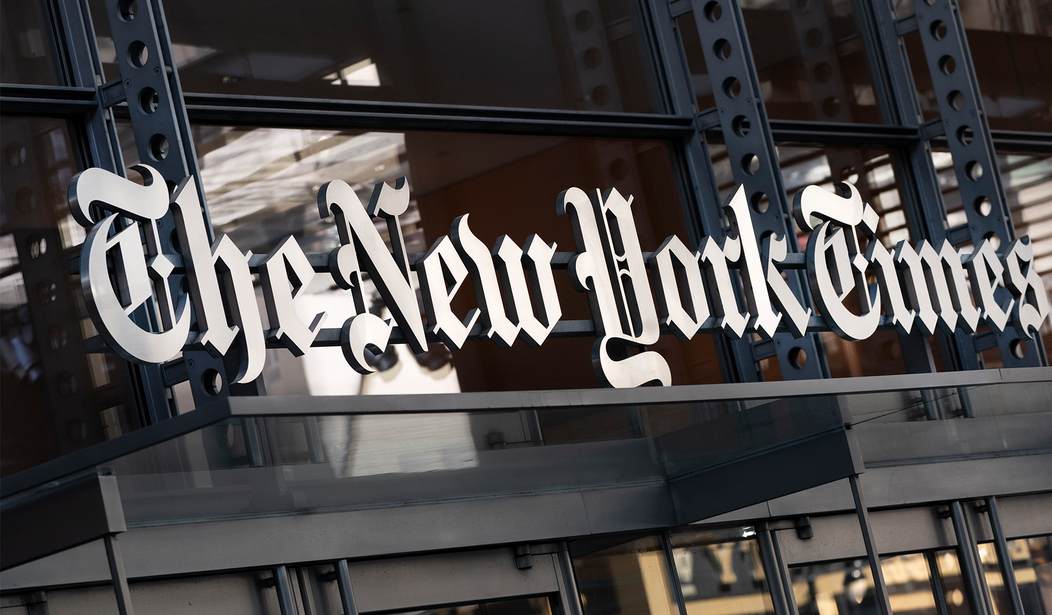And the media wonder why no one believes them any longer.
Earlier today, John picked up NPR’s critical take on Rolling Stone’s coverage of an arrest of an ABC News producer last year. Be sure to read it if you missed it, but it’s not the only mainstream media outlet that should be embarrassed this week. Over the weekend, the New York Times dragged up the hoary conspiracy theory of the 1980 October Surprise, with a single source claiming he’d been duped into it 43 years ago — Ben Barnes.
Some readers may remember Ben Barnes from another conspiracy theory: the Texas Air National Guard (TANG) story that blew up in the faces of CBS News execs in late 2004. Barnes had come forward to tell CBS’ 60 Minutes Wednesday that he had arranged for George W. Bush to get into the TANG by jumping him over the waiting list so that then-President Bush could avoid service in Vietnam, even though (a) Barnes was a Democrat and not a Bush ally, and (b) Barnes later claimed no one in the Bush family asked him to do it. The Thornbugh-Baccardi report that CBS commissioned on Rathergate delves into this in great detail, including the fact that CBS producer Mary Mapes had heard from several other sources that this was almost certainly false, a fact she kept from CBS News management (page 123).
There’s also this on pages 130-31 about Barnes’ response when pressed on the matter:

And while we’re at it, (c) — Barnes was one of the biggest fundraisers in the 2004 cycle for the DNC and John Kerry, a point that CBS failed to report even though they knew it while using him as their main source for that claim.
Having this background in mind, Peter Baker’s story was almost like a walk down Memory Lane. Just as Barnes claimed to need to cleanse his soul in 2004 about recommending people for TANG, he now claims the need to come clean about his supposed role in the 1980 October Surprise.
“History needs to know that this happened,” Mr. Barnes, who turns 85 next month, said in one of several interviews, his first with a news organization about the episode. “I think it’s so significant and I guess knowing that the end is near for President Carter put it on my mind more and more and more. I just feel like we’ve got to get it down some way.”
It’s very convenient that Barnes chose to wait forty-three years for this particular cleansing. Most of the principals in his tale are either dead or unable to respond, unlike his thirty-year-old tale in 2004. And it’s not as if this conspiracy theory only recently arose, either; it has circulated almost ever since the 1981 release of the hostages. As Baker himself notes, it was the subject of a congressional investigation as well as a book by Gary Sick in 1991. Barnes had plenty of opportunities to tell his tale.
So why didn’t he? Likely because it was nonsense. Not only does he have no proof, one of the few remaining people from that period rejects it entirely:
John B. Connally III, the former governor’s eldest son, said in an interview on Friday that he remembered his father taking the Middle East trip but never heard about any message to Iran. While he did not join the trip, the younger Mr. Connally said he accompanied his father to a meeting with Mr. Reagan to discuss it without Mr. Barnes and the conversation centered on the Arab-Israeli conflict and other issues the next president would confront.
“No mention was made in any meeting I was in about any message being sent to the Iranians,” said Mr. Connally. “It doesn’t sound like my dad.” He added: “I can’t challenge Ben’s memory about it, but it’s not consistent with my memory of the trip.”
So why did Baker and the NYT’s editors choose to run the story — and not just run it but feature it? Here’s the explanation from Baker, complete with a totally credulous endorsement of Barnes’ Rathergate tale:
Mr. Barnes is no shady foreign arms dealer with questionable credibility, like some of the characters who fueled previous iterations of the October surprise theory. He was once one of the most prominent figures in Texas, the youngest speaker of the Texas House of Representatives and later lieutenant governor. He was such an influential figure that he helped a young George W. Bush get into the Texas Air National Guard rather than be exposed to the draft and sent to Vietnam. Lyndon B. Johnson predicted that Mr. Barnes would become president someday.
Confirming Mr. Barnes’s account is problematic after so much time. Mr. Connally, Mr. Casey and other central figures have long since died and Mr. Barnes has no diaries or memos to corroborate his account. But he has no obvious reason to make up the story and indeed expressed trepidation at going public because of the reaction of fellow Democrats.
Ahem. Put aside the characterization of Barnes’ “credibility” in light of the Rathergate episode. Baker’s argument essentially boils down to this: Barnes is accusing Ronald Reagan of malfeasance and advancing a conspiracy theory with no evidence whatsoever after not saying anything for forty-three years, but he has no reason to lie. And the only other source with any connection to the incidents I can find says it never happened.
Is that journalism?
Or is that narrative building?
Andrew Malcolm and I discuss this at some length in the latest episode of The Ed Morrissey Show podcast:
- Will Alvin Bragg really indict Donald Trump? I’m skeptical, as I tell Andrew, given the case and the circumstances.
- We discuss Ron DeSantis’ response, plus game out whether Trump’s latest call to the streets will work.
- We also take a look at the NYT’s use of a notorious Rathergate source to flog the 1980 October Surprise conspiracy theory meets any journalistic standard, and then discuss another new poll showing that media credibility continues to crater.
- Stick around for our jokes of the week, too!
The Ed Morrissey Show is now a fully downloadable and streamable show at Spotify, Apple Podcasts, the TEMS Podcast YouTube channel, and on Rumble and our own in-house portal at the #TEMS page!








Join the conversation as a VIP Member